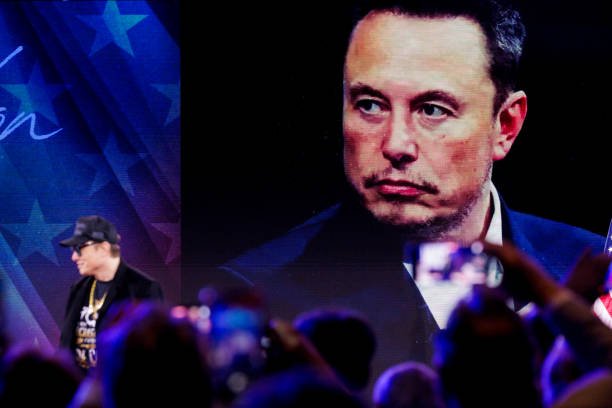Elon Musk Criticizes U.S. Government Spending, Calls for ‘Chainsaw for Bureaucracy’
Billionaire entrepreneur Elon Musk has once again taken aim at what he perceives as excessive bureaucracy in the United States, this time using an evocative metaphor: wielding a ‘chainsaw for bureaucracy.’ In a recent social media post, Musk expressed frustration over government inefficiencies and questioned the effectiveness of public spending, drawing a wave of support and criticism from various corners of the internet.
Musk’s Critique of Bureaucratic Spending
Musk’s comments come amid growing debates about federal and state government spending, particularly in areas such as infrastructure, defense, and social programs. His remarks were seemingly triggered by reports detailing an increase in government expenditure, particularly in administrative processes that critics argue slow down innovation and economic growth.
“The Matrix is real,” Musk wrote on X (formerly Twitter). “We need a chainsaw for bureaucracy.” His statement quickly gained traction, with many interpreting it as a call for regulatory reform and more efficient use of public funds.
The Tesla and SpaceX CEO has long been an outspoken critic of bureaucratic obstacles, often lamenting how government regulations slow down technological progress. He has previously clashed with regulatory agencies, including the Federal Aviation Administration (FAA) and the Securities and Exchange Commission (SEC), over what he has described as overly restrictive and inefficient policies.
Support and Opposition to Musk’s Stance
Musk’s comments were met with a mix of agreement and pushback. Supporters argue that bloated bureaucracy stifles innovation and economic growth, echoing his sentiments that excessive regulations can hinder business expansion and technological advancements.
“Government inefficiency is a massive problem,” wrote one user in response to Musk’s post. “Too much red tape is killing progress.”
However, critics argue that regulatory frameworks are necessary to ensure ethical governance, protect consumers, and maintain fair competition. They contend that reducing bureaucracy without careful planning could lead to deregulation that benefits corporations at the expense of public welfare.
“Eliminating bureaucracy is not the same as improving efficiency,” said political analyst Richard Lawson. “Regulations exist for a reason, and while some reforms may be necessary, extreme measures could have unintended consequences.”
Government Spending Under Scrutiny
Musk’s remarks align with broader concerns about rising U.S. government spending. Recent reports from the Congressional Budget Office (CBO) indicate that federal expenditures have continued to rise, with significant allocations toward defense, healthcare, and social security programs. Critics argue that while some spending is necessary, inefficiencies in resource allocation have led to wasteful expenditures.
Many in the tech and business sectors share Musk’s concerns about slow-moving regulatory processes. Bureaucratic delays have often been cited as obstacles to major projects, such as the development of high-speed rail, infrastructure improvements, and space exploration initiatives.
Musk’s Personal Battles with Bureaucracy
Musk has firsthand experience with bureaucratic hurdles. SpaceX, for example, has frequently faced delays in its Starship launch program due to regulatory approvals from the FAA. Tesla, too, has encountered challenges related to environmental regulations, manufacturing permits, and tax incentives.
In California, where Tesla was originally headquartered before moving to Texas, Musk repeatedly expressed frustration with the state’s regulatory environment. In 2020, he famously threatened to relocate Tesla’s operations out of California due to what he described as overly restrictive business policies.
A Call for Reform?
Whether Musk’s comments will translate into meaningful policy discussions remains to be seen. Some policymakers have expressed openness to regulatory reform, particularly in sectors where excessive red tape may be impeding economic progress. Others, however, warn that reducing oversight too aggressively could create new risks.
As debates over government efficiency and spending continue, Musk’s latest remarks serve as a reminder of the ongoing tension between innovation-driven businesses and regulatory institutions. While the call for a ‘chainsaw for bureaucracy’ may be dramatic, it reflects a sentiment shared by many in the business community who believe that a more streamlined government could help foster greater economic growth and innovation.
For now, Musk’s words have once again sparked widespread conversation, reinforcing his role as a powerful voice in discussions about business, technology, and governance.




